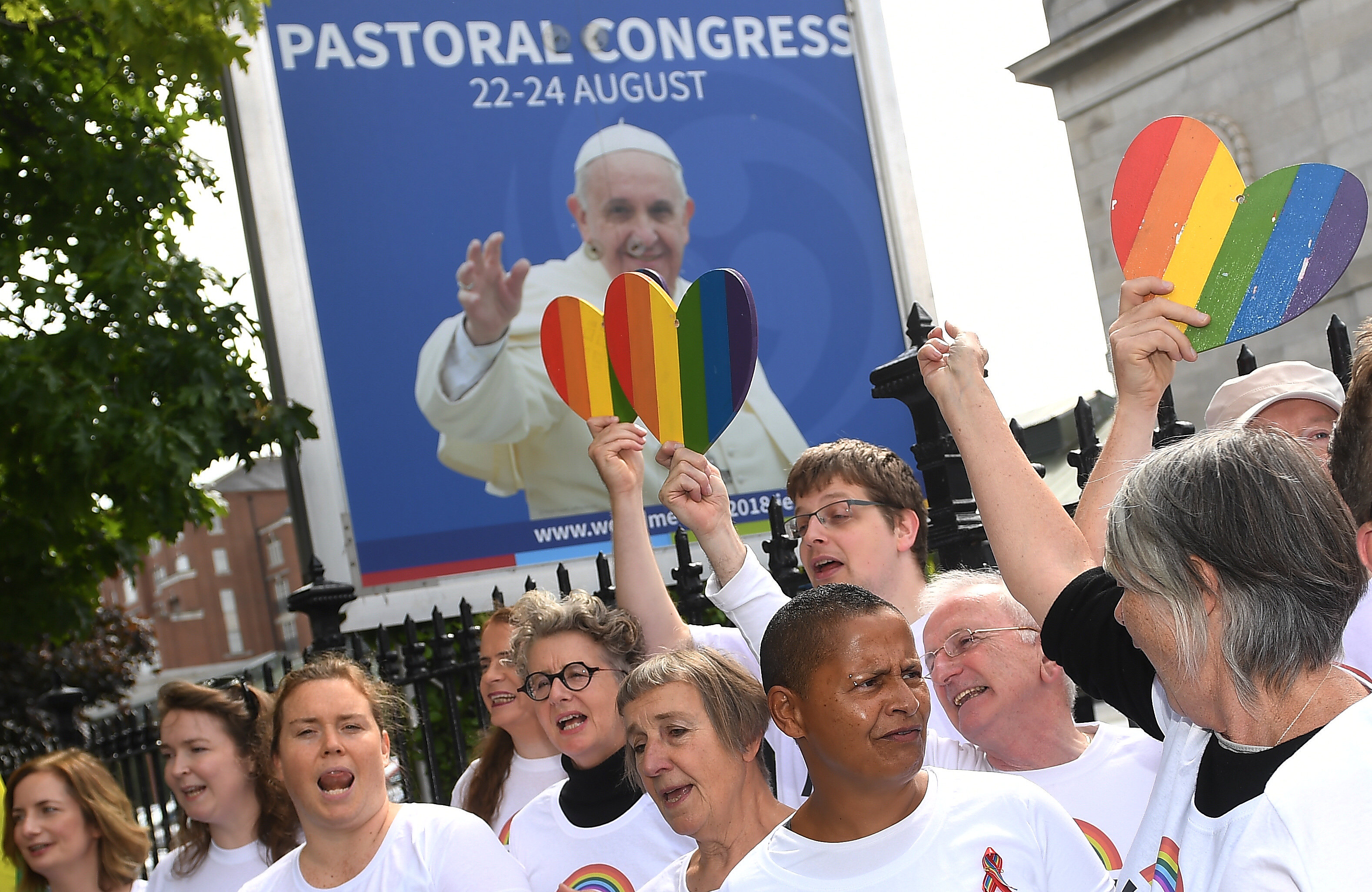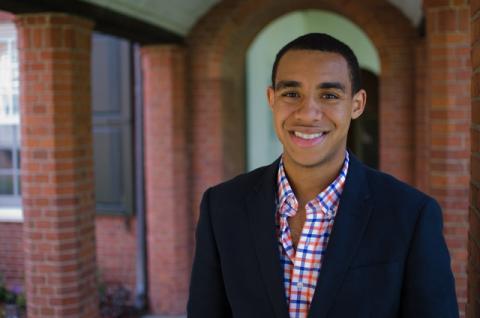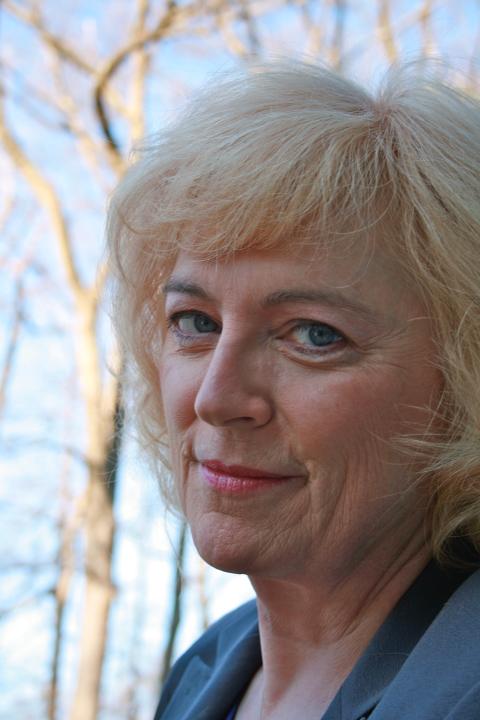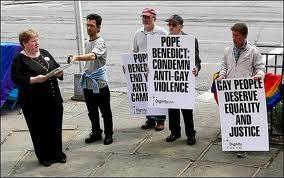
An LGBT choir sings outside the Pastoral Congress at the World Meeting of Families in Dublin Aug. 23. (CNS photo/Reuters/Clodagh Kilcoyne)
In the more than quarter-century that Francis DeBernardo has been involved in LGBT ministry, only twice have protesters shown up to his organization's events for lesbian, gay, bisexual or transgender Catholics — and both times it was only one person.
Until this year.
In early October, after several conservative Catholic websites launched an attack on an annual retreat for gay priests, brothers and deacons, the Dominican sisters who run the Siena Retreat Center outside Milwaukee, Wisconsin, had to hire security to keep more than two dozen protesters off the property, also home to the order's elderly sisters.
It's all part of a "toxic atmosphere that has been building up for decades," said DeBernardo, executive director of New Ways Ministry, the Catholic LGBT advocacy and educational organization that sponsored the retreat.
Animosity against LGBT Catholics is nothing new, but it seems to be increasing in intensity, perhaps in response to an overall growing acceptance and support for LGBT people in the United States and even by Pope Francis, who famously responded "Who am I to judge?" in response to a question about homosexuality.
But there is plenty of judging still happening, say LGBT activists, theologians and ministers, who believe the decidedly anti-Christian tone of recent threats and attacks mirror a lack of civility in the broader culture.
Fueled by well-funded conservative groups that represent a minority of Catholics but are disproportionately vocal, especially on social media, this "Catholic alt right" also has seized upon this summer's news about sexual abuse in the church to scapegoat gay priests and homosexuality.
These traditionalist Catholics say they are only defending church teaching on homosexuality and calling LGBT people to practice chastity, as was the message from speaker after speaker at the "Authentic Reform" conference sponsored by the Napa Institute earlier this fall.
But conservative Catholics' near-obsession with the issue is concerning to those who support LGBT Catholics.
In San Diego, anti-gay activists have disrupted a series of diocesan listening sessions about sexual abuse and have had to be removed by security. Also in that diocese, a parish worker who is gay resigned after death threats, slashed tires and harassing letters, phone calls and emails. The last straws were a break-in that resulted in homophobic graffiti at the parish and "doxing," or the broadcasting of his private information, including pictures of his family and where he lives.
"Is this how we as a Christian community behave toward those who are different than us?" asked Stan "JR" Zerkowski, executive director of Fortunate Families, a Catholic organization that tries to build bridges between families, friends and allies of the LGBTQ community and the church.
Zerkowski said the church "has blood on our hands," especially leaders who do not articulate that such attacks are sinful. "It's terrorism, and it's killing the spirit of another," he said.
LGBT people who work for church institutions have long feared for their livelihoods if they are open about their sexual orientation. Since 2007, more than 80 church workers have lost their jobs in LGBT-related employment disputes, according to New Ways Ministry.
In September, an employee of the Cleveland Diocese was fired after "liking" a picture of a same-sex wedding ceremony and posting photos of a same-sex wedding reception on Facebook. In six dioceses, Catholic school teachers' contracts require them not to support same-sex relationships professionally or personally.
Anti-gay activists comb social media, family obituaries and other online sources to find "evidence" of a Catholic employee's support of LGBT issues, said Marianne Duddy-Burke, executive director of DignityUSA, a Catholic advocacy organization that works for respect and justice for people of all sexual orientations, genders and gender identities.
Fired church employees have no recourse, she said, because so-called "religious liberty" laws legitimize discrimination against LGBT people.
For some, the animosity is internalized and can become a life-or-death issue. Studies by the Centers for Disease Control and Prevention have found that LGBT youth seriously contemplate or attempt suicide at higher rates than heterosexual youth. At least one study has connected higher suicide rates among LGBT youth with increased importance of religion in their lives (unlike for their heterosexual counterparts, for whom religiosity is a protective factor).
Advertisement
Those who speak out in support of LGBT Catholics often face negative push-back, including the cancellation of speaking engagements. Jesuit Fr. James Martin, whose writings simply call for two-way dialogue between the church and LGBT people, has had talks cancelled and faces organized protests at many appearances.
Coverage of these and other stories by mainstream media paint a picture of an intolerant church. For example, Chicago and national media gave a platform to a priest who organized a ritual to burn a rainbow flag to signify opposition to homosexuality. When the priest ignored a directive from Chicago Cardinal Blase Cupich not to proceed with the burning, he was removed from his parish, igniting a firestorm of support and conspiracy theories online.
But such moves may be having the opposite effect, eliciting sympathy for attacked LGBT Catholics and adding to the growing numbers of Catholics who oppose discrimination against LGBT people.
"I'm seeing the people of God rise up and saying 'This is so ugly, and this is not who we are," said Zerkowski, who sees growing acceptance of LGBT people as the "voice of the people expressing the will of the Spirit."
Roughly two thirds of U.S Catholics favor same-sex marriage, with even larger numbers opposing discrimination against LGBT people in jobs, public accommodations and housing, according to the 2017 "American Values" data from the Public Religion Research Institute.
Growing acceptance also means LGBT Catholics who are attacked are more willing to publicly tell their stories, said Duddy-Burke, who did not go public in 1993 when two death threats — in response to a story about her in the conservative Catholic newspaper the Wanderer — forced her to move from her home.
"Many of us expect and have become used to being treated with respect and dignity and being protected in civil society, and we hold the church to at least the same standard," she said. "We want the same from the church that we get in the rest of our lives."
Trump effect
But as acceptance increases, especially among younger Catholics, the opposition becomes more extreme, as it did in past civil rights movements. Many LGBT Catholics are concerned about a ratcheting up of animosity against people in a number of marginal groups since the election of President Donald Trump.
"The president has legitimized personal attacks against whole categories of people," said Duddy-Burke. "I think that people are much bolder in the way they go after one another."
Some LGBT Catholics are fearful, as bigoted or intimidating language once quelled by so-called "politically correct" cultural norms seems to be normalized.
Conservative Catholic groups that oppose homosexuality, such as Church Militant, LifeSite News and the Lepanto Institute, are using even more extreme tactics similar to Breitbart News or other alt-right organizations in the broader culture, said theologian Jason Steidl, who terms such groups the "Catholic alt right."
Civil discourse from church leaders via church documents or statements has been replaced with personal, politicized attacks from these groups. "We haven't seen this before," said Steidl, a postdoctoral teaching fellow at Fordham University and advocate for the LGBTQ community in the church.
Steidl was himself the subject of an entire episode of "The Vortex," a Church Militant video show, after he wrote a blog post about LGBT Catholics in the aftermath of the cancellation of a talk by Martin.
Titled "Queer as Bell," the video features a photograph lifted from the Internet and superimposed with a rainbow school bell. "It wasn't a very nuanced portrait of me," Steidl said of the show. "It was actually a homophobic screed."
Steidl did not experience any negative fall-out from the show from his colleagues at Fordham, several of whom have been similarly attacked for supporting LGBT issues. "It actually helped my career, because it brought attention to the advocacy work I'm doing," he said, though he notes that he would not be hired at about half the Catholic colleges and universities in the country because of his work.

Craig Ford (Photo credit: Brian Dowling)
Theologically conservative Catholics feel they must defend the church against any possible changes, even if that means attacking the hierarchy, including the pope, said Craig Ford, also a postdoctoral teaching fellow at Fordham. "The reaction has been to clamp down on even the smell of anything that seems to provide more visibility to queer people in the church."
In their attacks on San Diego parish minister Aaron Bianco, the Lepanto Institute said his being employed by the church was "unconscionable" and "a hypocritical mockery of the Church he represents” because "[e]ven if he mouths the Church's teachings, his own example is a stark contradiction to those very teachings." They also criticized San Diego Bishop Robert McElroy.
Ford believes conservatives’ connecting of homosexuality to sexual abuse may be a political tactic, but it also comes from a nostalgia for a perceived time of innocence, before the sexual revolution, and from historic views of LGBT people as sexually deviant and likely predators.
"But there is a human cost to that," he said "It pathologizes gay people, especially gay priests, in the process."
That some in the church feel they need to be the "church militant" today is "a dangerous, dangerous concept," said Zerkowski of Fortunate Families.
Overall hate crimes against people based on race, religion, national origin, sexual orientation, gender identity and disability jumped in 2017, marking the fourth straight year of upticks in such incidents in the U.S. For transgender Americans, 2018 is on track to become the deadliest on record, with 22 murders so far, according to the Human Rights Campaign.
The high transgender murder rate — especially of transgender women of color, is "just another sign of what's going on," said Hilary Howes, a Washington D.C.-area Catholic and founder of TransCatholic, a ministry to transgender people.
Howes admits she has faced little discrimination in the church — except for some parishioners who once refused to shake her hand at the sign of peace — but still sometimes feels like she has "a target on her back" in the broader culture.
While lesbian, gay and bisexual Catholics can "hide" their sexual orientation, a transgender person may have physical indications of sexual identity. In 2011, a teacher at a New York Catholic high school was fired after she admitted she was transgender after a student complained of "feminine appearance," including long hair, earrings and manicured nails.

Hilary Howes (Courtesy of Hilary Howes)
Yet transgender Catholics also can feel invisible, rarely mentioned from the pulpit or represented at church events, Howes said. Being more accepting of transgender people would make the church more relevant to younger people, she said. "With transgender issues, young people get it."
Words matter
But at the church's recently concluded gathering of bishops on the topic of young people, four weeks of consultation resulted in a document that refused to use the terms "lesbian," "gay" or "bisexual" and did not mention transgender people at all.
That sends a message to LGBT people that "they don't exist," said Ford. "In order to begin a conversation, we need to acknowledge each other as conversation partners and validate the self-concept that people have," he said. "The refusal to even acknowledge that shows a fundamental resistance to bringing LGBTQ+ or queer people to the table."
Instead, they hear that even to identify as LGBT is "an affront to God," said Zerkowski. "Words matter, because Jesus revealed himself to us as the Word. And right now our words are hurting our sisters and brothers. In fact, they're killing our sisters and brothers."
That the document from the Synod on Young People, the Faith and Vocational Discernment calls for "accompaniment" rather than "conversion" of LGBT young people is a step forward, said DeBernardo of New Ways Ministry, as is the final document's strong condemnation of discrimination and violence against lesbian and gay people.
But it also uses the word "inclinations" to describe non-heterosexual sexual activity, which DeBernardo said in a statement "reduces lesbian and gay love and sexuality to base desires for sexual activity."
Words such as "inclination," "intrinsically evil" and "objectively disordered," as the Catechism of the Catholic Church has described homosexual acts, hurt LGBT Catholics and don't reflect their lived experiences, LGBT theologians and activists said.

Marianne Duddy-Burke (left) leads a 2008 witness of LGBT Catholics outside of the United Nations. (Photo credit: Lourdes Rodriguez-Nogues)
Describing a "homosexual orientation" as not sinful but that acting on that "inclination" is, creates a division that doesn't exist for LGBT people, Ford said. "What queer people are hearing is that they're called to a sort of bifurcated existence, where the love they feel can never be expressed in a sexual relationship," he said.
Duddy-Burke calls the teaching "dehumanizing," and believes "overturning that bad theology has to be the ultimate goal of the LGBTQIA justice movement."
Steidl believes that current teaching is "fundamentally violent" toward LGBT people, as is the pope’s support of prohibiting gay men entering the seminary. "I think we need a revolution in Catholic thought that takes into account the homophobia and transphobia that Catholics experience," he said.
Other "vicious terms" used by church leaders during debates on same-sex marriage or other LGBT issues have included "defeat for humanity," "demonic, poison," "murderers," and "Nazi-fascism and communism," DeBernardo said.
Such inflammatory language is the "intellectual underpinning" of harassment and violence against LGBT people, he said.
When such language is used, allies can speak up, and they can ask pastors, bishops or Catholic school administrators how they will protect LGBT community members, LGBT advocates said. Above all, Catholics can adopt a posture of listening to those on the margins.
Meanwhile, LGBT Catholics said they are being cautious about possible harassment and attacks, while refusing to give into the fear.
"I don't expect that anytime in my lifetime all Catholics will support people being gay or same-sex marriage, and that's fine," Duddy-Burke said. "But they do need to respect our rights to move safely in the world and not be harassed and called names, and not to have our access to health care, housing or jobs limited because of who we are."
While those who threaten and harass LGBT Catholics are a minority, they need to be taken seriously, said Steidl. "How we respond will really determine the future of the church."
[Heidi Schlumpf is NCR national correspondent. Her email address is hschlumpf@ncronline.org. Follow her on Twitter @HeidiSchlumpf.]







